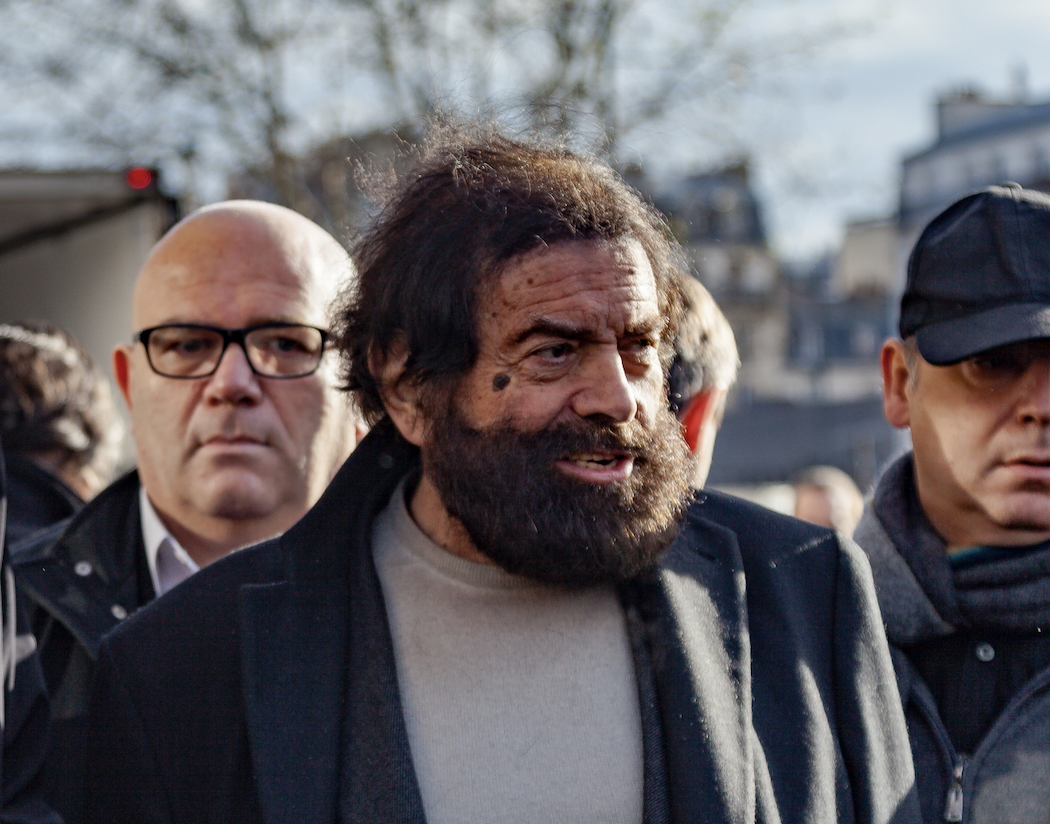INTERVIEW – Marek Halter: From Camus to Primo Levi, prophets are missing today

“This historical era has one problem among many: prophets are missing.” Marek Halter is one of Europe’s most influential intellectuals. Born in Warsaw in 1936, he fled with his parents from the horror of the ghetto established by Nazis along the Vistula River and after many vicissitudes landed in Kokand, in what was then the Uzbek Soviet Socialist Republic, where he remained until the end of the world. Since 1950, Paris has been his homeland. From there, he observes today “a fragile Europe: we have already seen it with the inability to propose concrete solutions after the Russian attack to Ukraine, and we are seeing it again now, with the absence of a role and a vision for the Middle East. There is a lack of prophets, of big thinkers, personalities who can who can make a difference with their charisma. And I don’t think they will emerge from the upcoming elections,” Marek Halter told Pagine Ebraiche in an interview realized at the beginning of June.
Democracy, with its value structure, is not enough, denounced the author of books such as The Trilogy of Canaan, Le Kabbaliste de Prague, and Why I am Jewish. At the end of the day, he said, “democracy is a system,” but in order to nurture it “quality ideas are necessary, and of course there are around good writers and philosophers, but I don’t see anybody of the caliber of Albert Camus or Primo Levi: they were really making the difference.” This gap, he remarked, “can be felt even more sharply” in face of the gradual rise of “the sole ideology in good shape in the world today: political Islam. What can we offer in contrast?” Like National Socialism in Hitler’s time, “so political Islam wants to impose its ideas through extermination, erasing the State of Israel and striking down the last Christians in the East.”
The support Hamas’s slogans find in part of the Western world are a significant part of the problem, he said. In his view, “on the level of rhetoric we are back to the 1930s, to the antisemitism widespread by publications such as Der Stürmer.” There was an underestimation upstream on the part of the ruling classes and the intellectual and thought leadership. “Strong as we are of our Enlightenment ideals, we deluded ourselves that we had conquered universalism and thus solved many of the problems that plagued us, not realizing how deeply some tribal ideals are rooted in our societies.” Very few act, among those who should.
Among those who do not look the other way and instead have the courage to put their faces to it is a close friend of Halter’s, the president of Conference of French Imams Hassen Chalghoumi. His life under escort for his uncompromising fight to Islamic radicalism, Halter said, is a commitment that “must be supported,” a friendship “to cultivate” also in function of a “necessary reinforcement” of human brotherhood as an antidote to the proliferation of prejudice, resentment and violence.
Halter calls for an “urgent” change for the Middle East, that he sees as a last call before a possible catastrophe with global repercussions. “Israel should recognize in the Palestinian National Authority a full-fledged interlocutor. It is the one and only path to a compromise, the only desirable solution to guarantee peace and stability,” he stressed. And if the almost 90 years old Abu Mazen is no good “because he has exhausted his momentum, one must have the courage to release from prison Marwan Barghouti, due to the significant following he enjoys among Palestinians. I know that I am saying things that not everyone likes, but peace has always been made with enemies.” And Israel has many. “But fortunately, it also has a magnificent and vital youth, embodied among others by figures such as Eden Golan, the Israeli singer who competed at Eurovision: she made a very strong impression on me.”
A new book by Halter has recently been published. It is about a love story in the Warsaw Ghetto of which the writer is among the few survivors. Dans tes yeux (In your eyes) also speaks to young readers recounting “an impossible love in an unacceptable world: the Ghetto inhabitants knew they could die at any moment, but they did not give up on culture, life, feeling. In what I saw and can attest to, we find the tragic echoes of Kafka and Shakespeare, a poignant dramatic force.” The plot is intertwined with the Song of Songs. For Halter, “it is the most beautiful love text ever written; its message is that love survives, so that in the darkness we can all find light.”
Adam Smulevich
